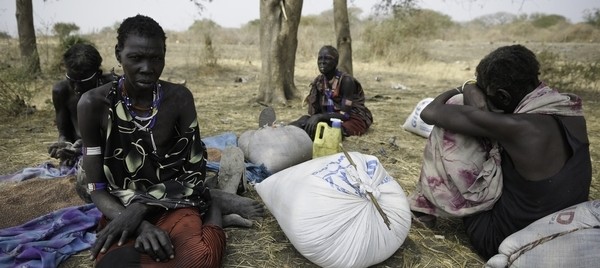International medical organisation Médecins Sans Frontières/Doctors Without Borders (MSF) says that “the aid response remains far from meeting the needs on the ground” in Jonglei state.
“An estimated 100,000 people still have dangerously inadequate access to emergency medical care, almost three weeks after the latest mass movement into the bush to escape violence,” read a press statement released by MSF today.
MSF said that it has reached some of the people hiding in the bush. “Since Sunday 21st July, MSF mobile clinics have performed more than 700 consultations in the bush in southern Pibor, treating mostly respiratory tract infections, malaria, and general health concerns resulting from hiding in such conditions for so long,” said MSF Emergency Coordinator Katrin Kisswani.
Others hiding in the bush have started arriving at another MSF clinic in Gumuruk. “Right now we are treating about 100 patients a day and we expect this to increase,” explained Kisswani.
“Since 19th July, a few – almost all women and children – have arrived with wounds that are clearly many days old,” she said, adding that some patients also show signs of mental trauma.
The Gumuruk clinic is currently the only healthcare structure functioning in Pibor County after MSF’s hospital in Pibor town was targeted and destroyed in May.
Over the past few days more than 25,000 people have arrived in Gumuruk village, leaving their hiding places in the bush to seek assistance. “To date aid agencies have been unable to cover their most basic needs,” noted the MSF statement.




